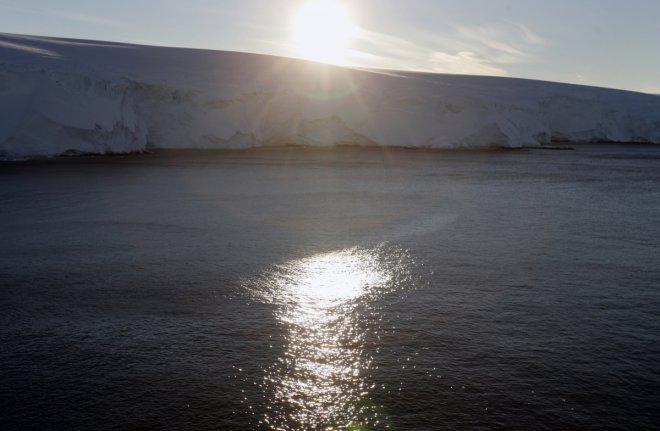
A significant drop of 10% was noticed recently in salinity at the Flower Garden Banks National Marine Sanctuary, which is located off the coast of Galveston, Texas. Researchers are pegging this shift to the influx of the 13 trillion gallons of water in the form of rain by Hurricane Harvey over Southeast Texas. It now poses a threat to the coral reefs in the area. Researchers have also said that the aftermath of Hurricane Harvey's devastating blow to the Gulf of Mexico would be felt on these coral reefs as they require saltwater to live and the freshwater could potentially wreak havoc on its ecosystem.
Researchers have said that the aftermath of Hurricane Harvey's devastating blow to the Gulf of Mexico would be felt on these coral reefs as they require saltwater to live and the freshwater could potentially wreak havoc on its ecosystem.
The full extent of the damage is yet to be collated, however, Rice University marine biologist Adrienne Correa remarked, "The salinity at one buoy on the reef dropped from 36 to 32 on Sept. 28, but it rebounded to 36 by Oct. 4, and it has been between 35 and 36 since then," reported EcoWatch.
This is an alarming matter as it has been noted globally that corals tend to form in a salinity range between 32 and 40, as per as the SEOS project. The project notes that a sudden drop in the salinity due to inbound freshwater from rivers or via torrential rains is considered a second salient factor, leading to the absence of coral reefs in front of large river mouths. Such an occurrence took place in the recent past during the April 2016 "Tax Day Floods" in Houston, in which the turbulent freshwater runoff caused significant damage to the coral reefs.
Correa quipped, "In late July 2016 there was a partial die-off on the East Flower Garden Banks," and "we didn't know it was happening until a recreational dive boat happened to go out there and see it. Because we didn't know about the risk ahead of time, we couldn't sample on a timeline that made it easy to figure out a mechanism for the die-off." However, this time around, in the case of Hurricane Harvey, "we were able to catch the 'before' much better than we were in 2016," stated Correa, as per the report.
There is a brief respite as Correa believes that Harvey's floodwater plume will traverse down from the coast to the southwest. This is critical as it would then not come in contact with fragile reefs that are likely to get decimated if it comes in contact with a direct influx of floodwater. Then again, measures need to be taken, because even if not a direct hit, there are chances that steering currents in the coming months may introduce the floodwater into the reefs and reduce the salinity of the water due to a precariously low level.
Also Read: Orionid meteor shower - When and where to watch it live
If it occurs, the consequences of it will be felt on a larger scale as a coral reef supports the native food chain which grows around it. If it is damaged or destroyed, several varieties of fish and marine life will be left bereft of their natural habitat and sustenance. The biological impact would also take a toll on the environment because as per estimated coral reefs produce almost half of the Earth's oxygen and subsume a whopping one-third of the carbon dioxide that we produce via usage of fossil fuels.
A report by UN's Food and Agriculture Organization indicates that coral reefs churn out 17% of all universally consumed protein. According to Correa, "When people look at the impact of hurricanes on coral reefs, they often look at physical damage or breakage of reef frameworks by waves and storm surge," however, "much less is known about the impacts of freshwater influx from the precipitation associated with a hurricane."









